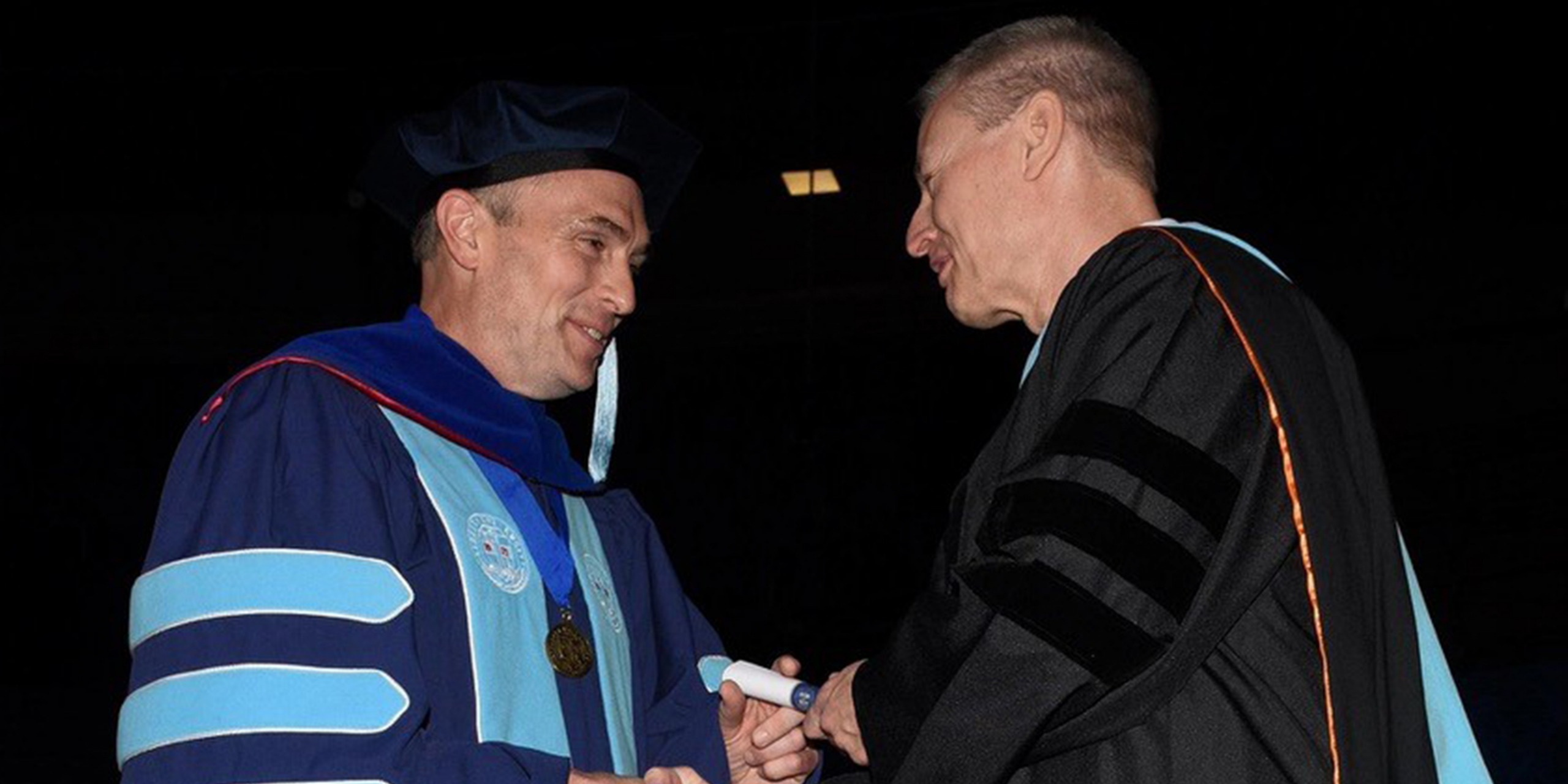Wednesday, July 31, 2024

Earlier this year Timothy Hodge, Director of the Center for Standardized Patients and Simulation, graduated with a PhD of Philosophy in Instructional Design and Technology from Liberty University. Prior to his graduation date he was granted a prestigious honor from the School of Education – the Outstanding Quantitative Dissertation Award.
Timothy started earning his doctorate degree in the fall of 2019, and finished and defended his dissertation in July 2023, but walked across the stage in May 2024 since it was after 2023’s graduation date based on the academic year cycle.
His near year wait of waiting to walk across the stage was well worth it after receiving the news of his award. The School of Education reached out to him right before he walked across the stage telling him that he’d been selected to receive the award.
There are three different awards – one in quantitative research, one in qualitative research and then one in applied science. A committee under each of those disciplines reviews and selects what they consider the most outstanding dissertation for the previous year under quantitative qualitative and then applied science.
“I was surprised, but I was also very honored,” Hodge stated. “My cohort and chair are a great group of educators and a great group of people. To think about the hundreds of people that did quantitative research in the past year and to be selected by mentors in the School of Education was a great honor.”
Hodge spent a year and a half doing research and his dissertation and actually did his research with LUCOM’s help through a place he knows all too well – the Standardized Patient and Simulation (SIM) Lab.
His research and dissertation were from a concept that originates with the organizational business psychology world known as psychological safety. Psychological safety is what instructors try to instill in students who come in the simulation lab.
“Basically, simulation is a place where students can come in and they can make mistakes,” Hodge explains. “They can go through with the knowledge that they’re not going to harm anyone. That messing up is part of their educational event. We expect errors, so psychological safety is the opportunity for students to feel that they can come into a simulation event and participate in a safe environment. They know that no negative consequences are going to occur because of their performance.”
The literature related to psychological safety explains that the bulk of what Hodge explains seems to be established in the pre-briefing phase of simulation. It describes several steps that essentially allow instructors to build psychological safety. Historically, there’s been the thought of everything that is done within simulation, stays in simulation.
However, Hodge explains that it’s a leaky construct.
“Recent research has suggested that what happens in simulation impacts what happens outside of simulation and what happens in the clinical environment happens in simulation. My theory and hypothesis were to explore these proposals further in determining if the pre-briefing area is really where we truly establish psychological safety.”
“I was looking at measuring psychological safety before and after a simulation, then comparing it to stress levels of students and also looking at a covariant in my research, which was team cohesion.” Hodge continues. “What I found was that the antecedent effects or things outside the simulation probably have some degree of impact on psychological safety because regardless of providing the elements of what’s described as establishing psychological safety was predictive of their post simulation psychological safety and stress levels.”
His research shows that there were no significant differences between the control group or the treatment group. Their levels of psychological safety were really influenced largely by how much psychological safety they came in with.
He believes the culture of the school and the culture of their learning experiences in general plays a much bigger role than originally thought.
“So can we change their psychological safety in the pre-briefing?” Hodge questions. “Well, that’s further research for the simulation community to do. But can we truly change their psychological safety if they come in with poor psychological safety? As instructors there probably are some things that we can do, but we may need to tailor it to the individual student to ensure the simulation is a good learning experience for them.”
For more information about LUCOM follow @LibertyMedicine on Instagram and X or Liberty University College of Osteopathic Medicine on Facebook.